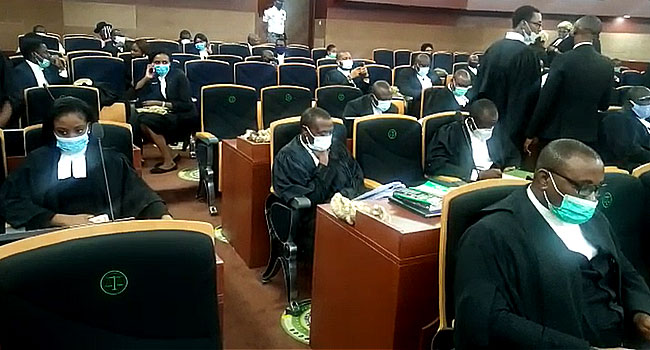
The Supreme Court has struck out suits by Lagos and Ekiti states, challenging the legality of virtual court sittings.
In the suit, the Attorney-General of Ekiti State, Mr Olawale Fapohunda, asked the court to determine whether the directive issued by the Attorney-General of the Federation to the Heads of Courts at Federal and State levels, as it relates to the conduct of virtual proceedings in court, is not a violation of the federalism provisions of the 1999 Constitution.
He also wanted the apex court to determine if the directive issued in line with the National Judicial Council is not a violation of the constitutional provisions on fair hearing as it relates to the conduct of criminal trials in public.
Furthermore, Fapohunda asked the court to set aside or strike down directives to the extent that they purport to be binding on the Ekiti State High Court for being inconsistent with the 1999 Constitution of the Federal Republic of Nigeria.
But in a unanimous judgement on Tuesday, Justice Olabode Rhodes-Vivour declared that as at today, virtual court sittings are not unconstitutional.
RELATED
Lagos Tests Constitutionality Of Virtual Court Hearings At Supreme Court
Ekiti Sues AGF, Others Over Constitutionality Of Virtual Court Hearings
The issue of the constitutionality or otherwise of remote or virtual court hearing has dominated national discussion since the publication of the guidelines of the NJC which recommended virtual court proceedings for courts in response to the COVID-19 Pandemic.
Opinion has been divided among lawyers on the legality of the directive.
A number of High Courts including those in Lagos, Ogun, and Borno states, have proceeded to implement the guidelines while many States have been adamant in their opposition to the directive insisting that only a constitutional amendment or pronouncement by the Supreme Court can ensure the legality of virtual court hearings.

0 Comments